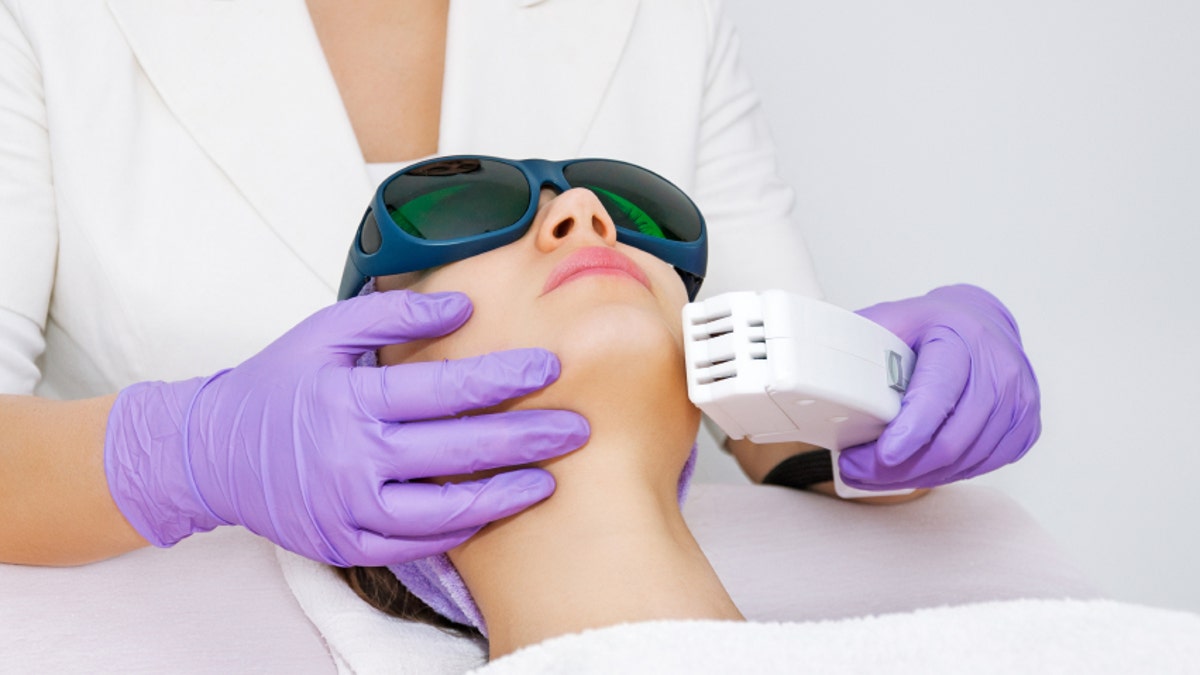
More patients are filing claims after being burned, scarred or otherwise injured during laser surgeries performed by non-doctors, a new study shows.
Researchers found 75 out of 175 legal cases related to procedures like laser hair or scar removal involved someone other than a physician operating the laser.
What's more, the proportion of lawsuits listing a nurse, medical assistant, technician or "intern" as the operator more than doubled between 2008 and 2011.
"It certainly makes us consider the need for better supervision and training," Dr. Murad Alam, from the Northwestern University Feinberg School of Medicine in Chicago, said.
"Even fairly common, well-established procedures like laser hair removal are not inherently safe," he said. "They are lasers, they have a variety of risks including eye injuries (and) burns."
Alam, a dermatologist, has studied how cosmetic procedures are regulated but wasn't involved in the new research.
He said states are all over the board when it comes to who they allow to perform laser surgery and whether operators need to be supervised.
"There's a lot of variation and some policies don't make sense," Alam said.
For example, researchers wrote in JAMA Dermatology that only doctors can perform laser hair removal surgery in Maine. But as of June 2011, they said, there were no restrictions on who could operate a laser in Nevada.
In some states, "You literally can have no certification, no training and just hang up a shingle," said Dr. H. Ray Jalian. He led the study at the University of California, Los Angeles.
Jalian and his colleagues searched public legal documents for liability claims related to laser surgery on the skin.
They found that in 2011, 78 percent of all legal cases involved someone other than a doctor operating the laser. That was up from 36 percent in 2008.
Laser hair removal resulted in the most lawsuits naming non-doctors. That was followed by rejuvenation, which involves intense pulses of light on the face. Injuries from laser treatments for scars and leg veins were also the focus of lawsuits.
Most of the laser surgeries not performed by doctors were done outside of formal medical facilities, such as at so-called medical spas.
"The evidence suggests there may be something more risky (about) getting a procedure done by a non-physician, particularly in a non-medical setting," Jalian told Reuters Health.
Practitioners there might not have enough training, or might be rushing through the procedure, he said.
"This is likely the tip of the iceberg," Alam said. "There are probably many, many other (claims and incidents) that are being settled or not even going to litigation."
He said he's seen patients who were burned while having laser surgery somewhere other than a doctor's office, but were embarrassed to talk about it, for instance.
The International SPA Association, a professional organization whose members include medical spas, declined a request for comment from Reuters Health.
In a position statement, the American Society for Dermatologic Surgery Association writes that when laser procedures are done by a non-doctor health professional, "The supervising physician shall be physically present on-site, immediately available, and able to respond promptly to any question or problem that may occur while the procedure is being performed."
Alam also recommended people considering laser surgery have it done by a doctor or by someone who is closely supervised by a doctor.
"It behooves people to do a little bit of investigation and not solely make their decisions based on convenience" or cost, he said.
Jalian agreed. "This puts the onus on the patients to kind of vet the person that's doing their procedure," he said.
"A lot of people view it as something similar to getting a haircut, but it's a little bit more involved and has greater risks," he said. "There's a chance you could have a scar or a burn for life."








































